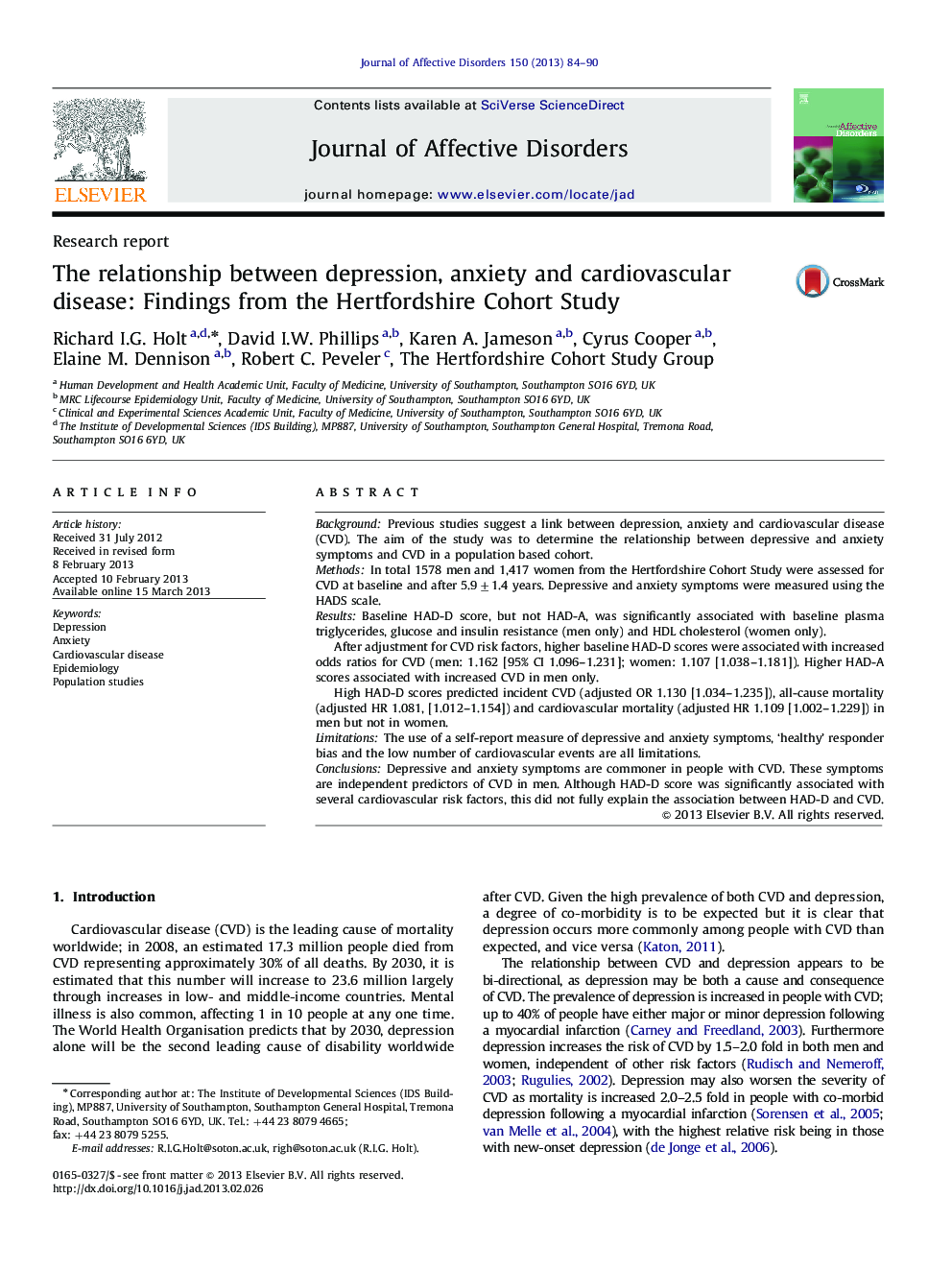| Article ID | Journal | Published Year | Pages | File Type |
|---|---|---|---|---|
| 6234148 | Journal of Affective Disorders | 2013 | 7 Pages |
BackgroundPrevious studies suggest a link between depression, anxiety and cardiovascular disease (CVD). The aim of the study was to determine the relationship between depressive and anxiety symptoms and CVD in a population based cohort.MethodsIn total 1578 men and 1,417 women from the Hertfordshire Cohort Study were assessed for CVD at baseline and after 5.9±1.4 years. Depressive and anxiety symptoms were measured using the HADS scale.ResultsBaseline HAD-D score, but not HAD-A, was significantly associated with baseline plasma triglycerides, glucose and insulin resistance (men only) and HDL cholesterol (women only).After adjustment for CVD risk factors, higher baseline HAD-D scores were associated with increased odds ratios for CVD (men: 1.162 [95% CI 1.096-1.231]; women: 1.107 [1.038-1.181]). Higher HAD-A scores associated with increased CVD in men only.High HAD-D scores predicted incident CVD (adjusted OR 1.130 [1.034-1.235]), all-cause mortality (adjusted HR 1.081, [1.012-1.154]) and cardiovascular mortality (adjusted HR 1.109 [1.002-1.229]) in men but not in women.LimitationsThe use of a self-report measure of depressive and anxiety symptoms, 'healthy' responder bias and the low number of cardiovascular events are all limitations.ConclusionsDepressive and anxiety symptoms are commoner in people with CVD. These symptoms are independent predictors of CVD in men. Although HAD-D score was significantly associated with several cardiovascular risk factors, this did not fully explain the association between HAD-D and CVD.
